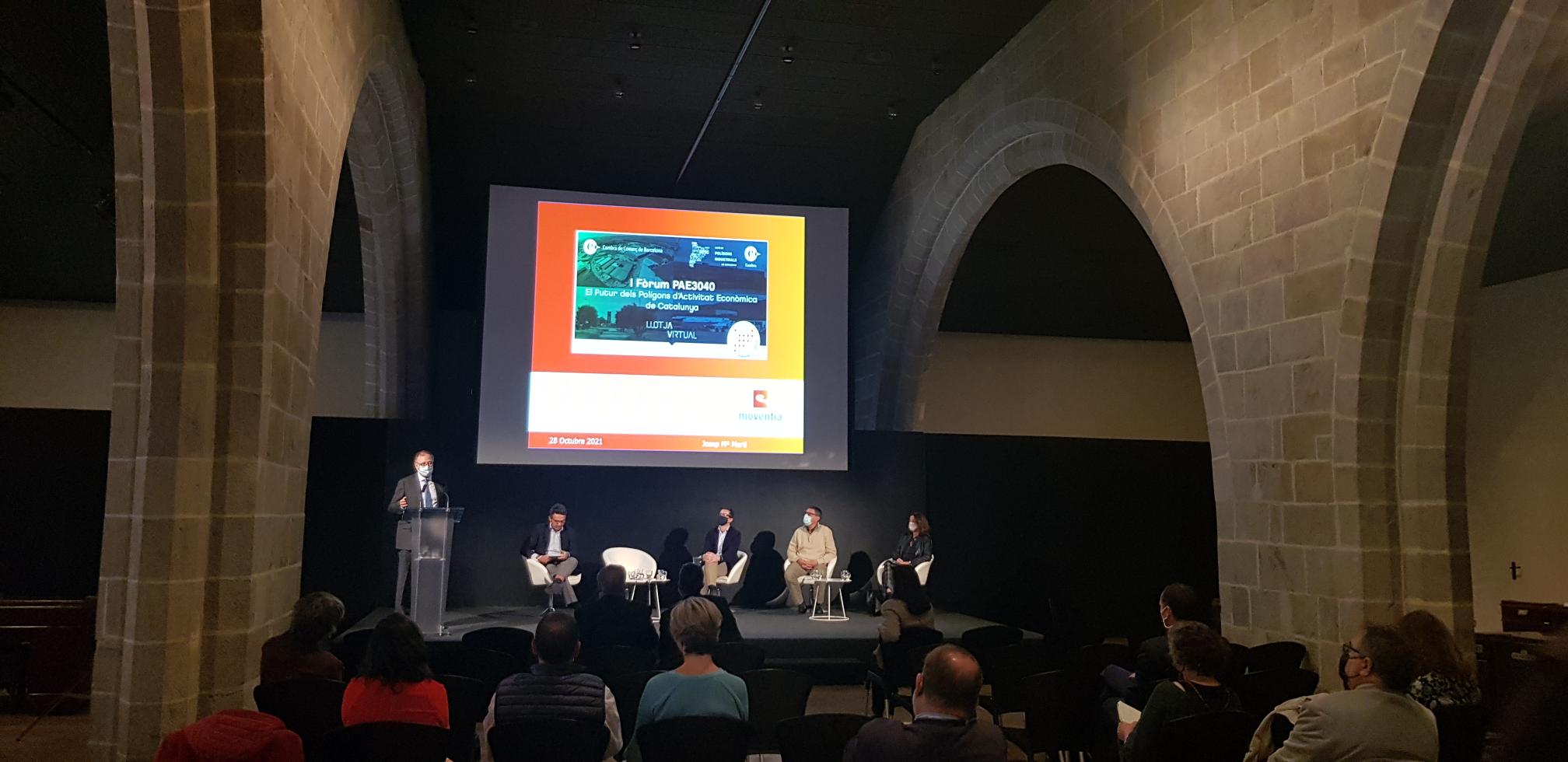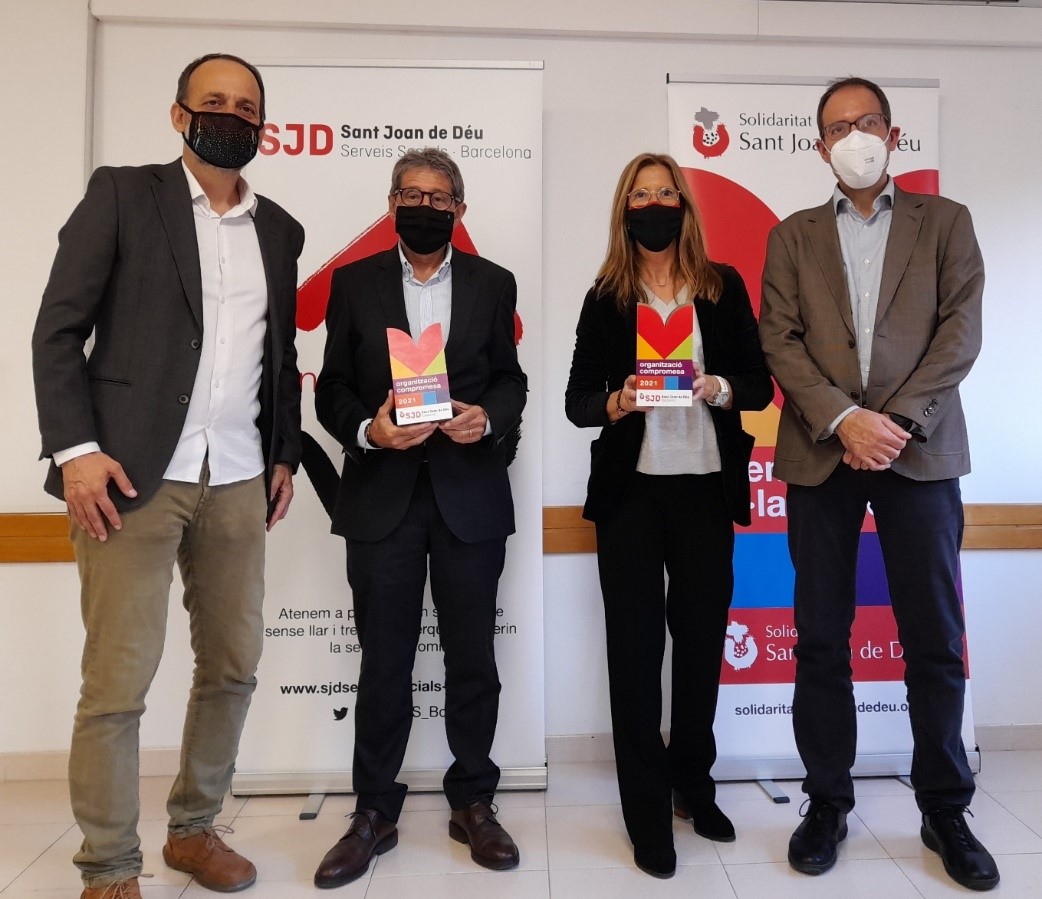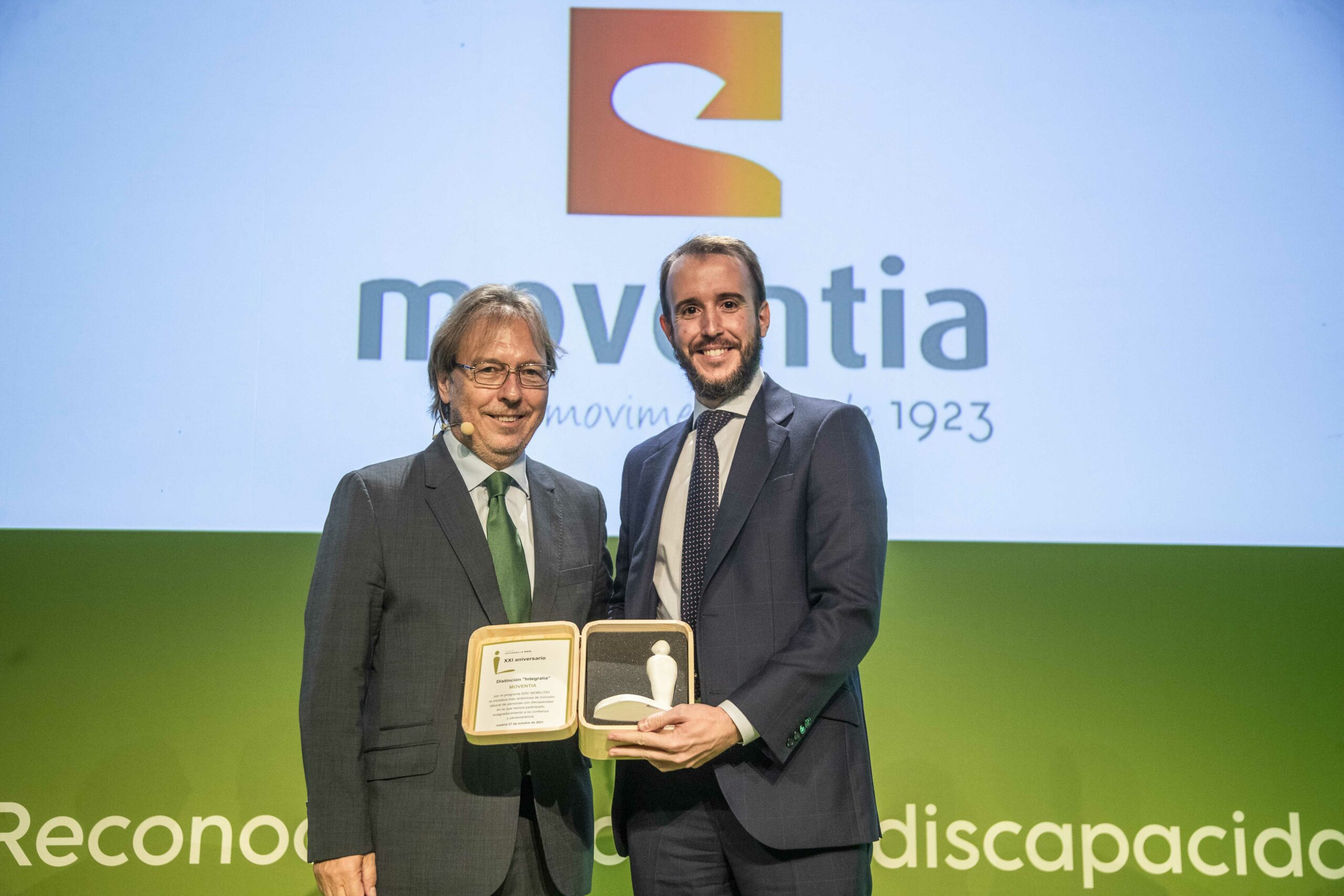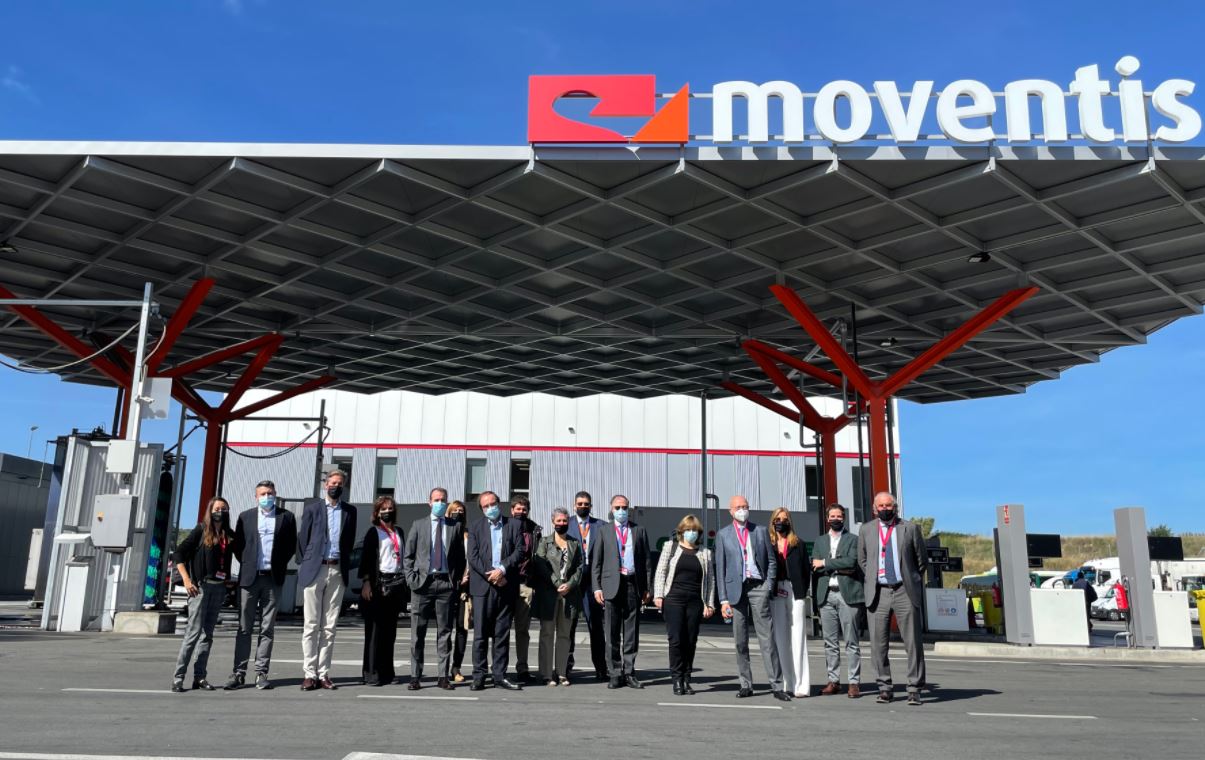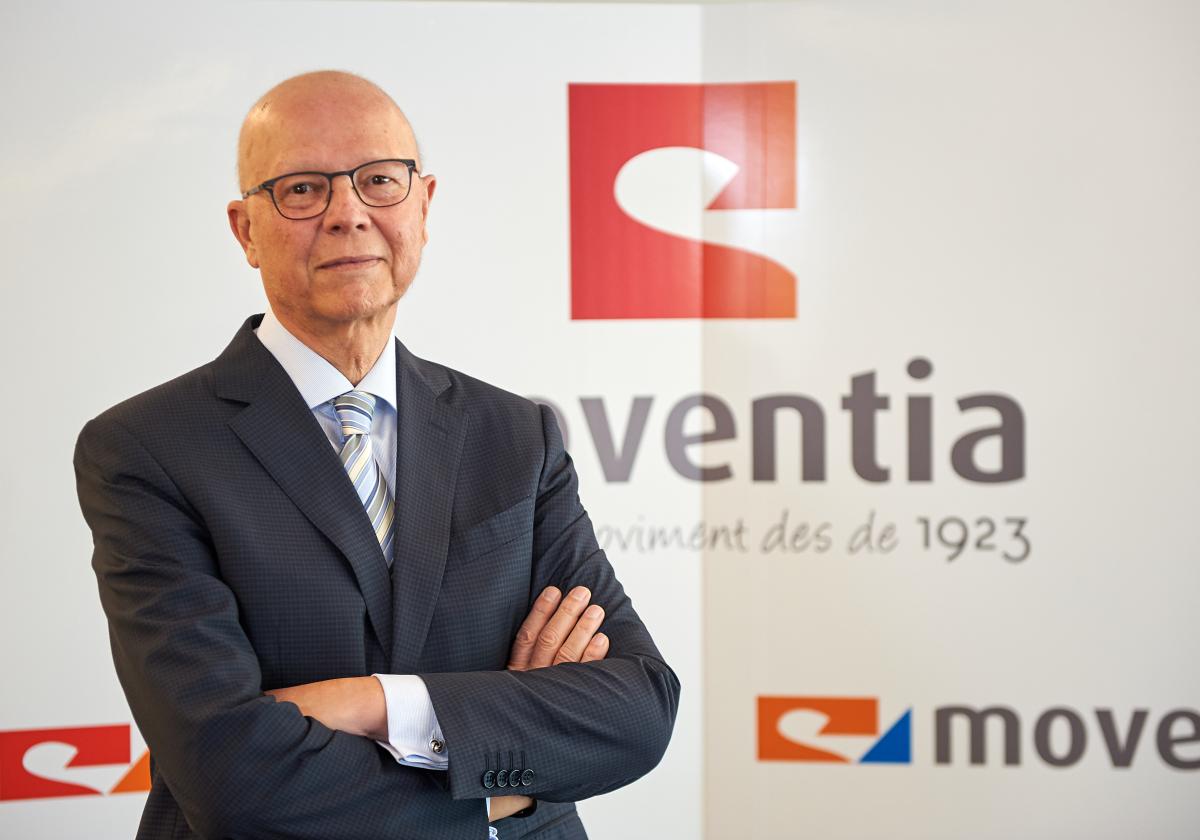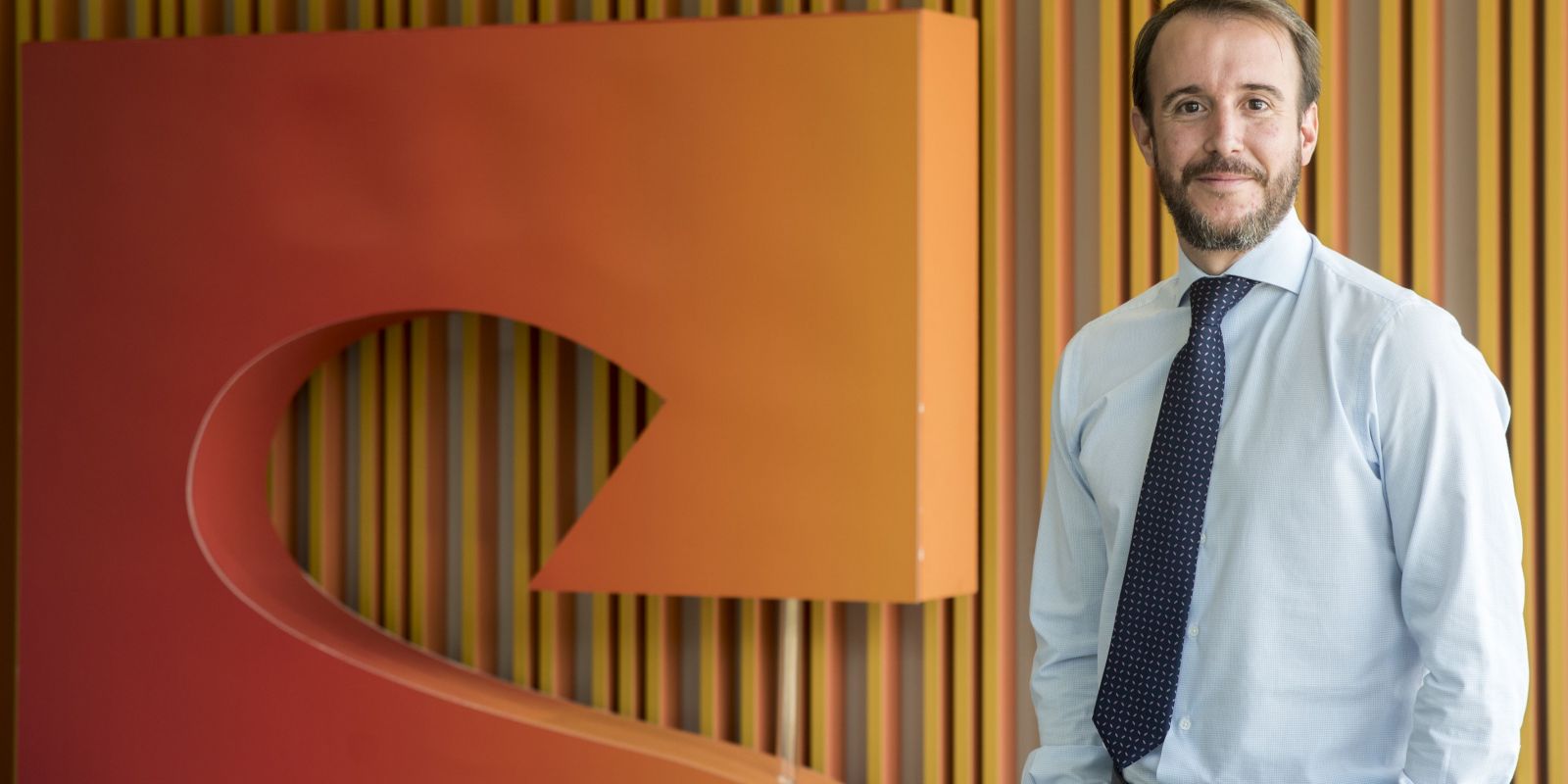The inclusion of 22 persons with disabilities at the Customer Services Centre of the T-Mobilitat project is the initiative by Moventia that was recognised by the Integralia DKV Foundation as one of the most ambitious in the field of labour market inclusion in which the social entity has taken part.
Moventia, a benchmark company in the field of sustainable mobility, received the ‘Integralia’ Distinction from the Integralia DKV Foundation for its work on labour market inclusion for persons with disabilities as part of the 21st anniversary celebrations at the foundation.
Presented to Jordi Castells, Operations Manager at Moventis, by Josep Santacreu, Chairman of the Integralia DKV Foundation, at a recent event in Madrid, the award represents genuine backing for Moventia in its commitment to promoting equal opportunities in the labour market for the most vulnerable groups in society, such as persons with disabilities.
In this regard, the distinction presented by the Integralia DKV Foundation recognises the incorporation by Moventia of 22 persons with disabilities in the labour market at the Customer Services Centre of the T-Mobilitat project. Together, they account for over 85% of the professionals who make up this call centre led by Moventia, undoubtedly the most ambitious project in which the Integralia DKV Foundation has taken part.
When Jordi Castells, Operations Manager at Moventis, collected the Integralia Award, Josep Santacreu, Chairman of the Integralia DKV Foundation, said “it has been a great opportunity for us to work shoulder-to-shoulder with such an important company in the mobility sector as Moventia, and to help realise its project to include persons with disabilities in the professional customer services team at T-Mobilitat, which it promotes as a member of the SocMobilitat consortium”.
To this statement, Jordi Castells, Operations Manager at Moventis, added: “Moventia has a very clear commitment to promoting equality in every sense of the word and we work hard every day to encourage inclusion in the labour market, among other places, for the most vulnerable groups in society, such as persons with some form or another of disability. We quickly accepted the invitation from Integralia DKV Foundation when it offered its experience, as it is unquestionably the perfect partner for building a professional team that will lead the customer services department of T-Mobilitat”.
The cutting edge of progress in social-labour inclusion
The project that received this Integralia Distinction represents another step forward in the development of labour market inclusion and social projects launched by Moventia. As part of its commitment to equal opportunities and labour market inclusion for building a better society, the company currently employs 86 persons with one form or another of disability, over 2% of its entire workforce. Furthermore, all the vehicles used by the company for public transport services are adapted for persons with reduced mobility.
This recognition underpins the commitment from Moventia to promoting equal opportunities in the labour market for the most vulnerable groups in society




